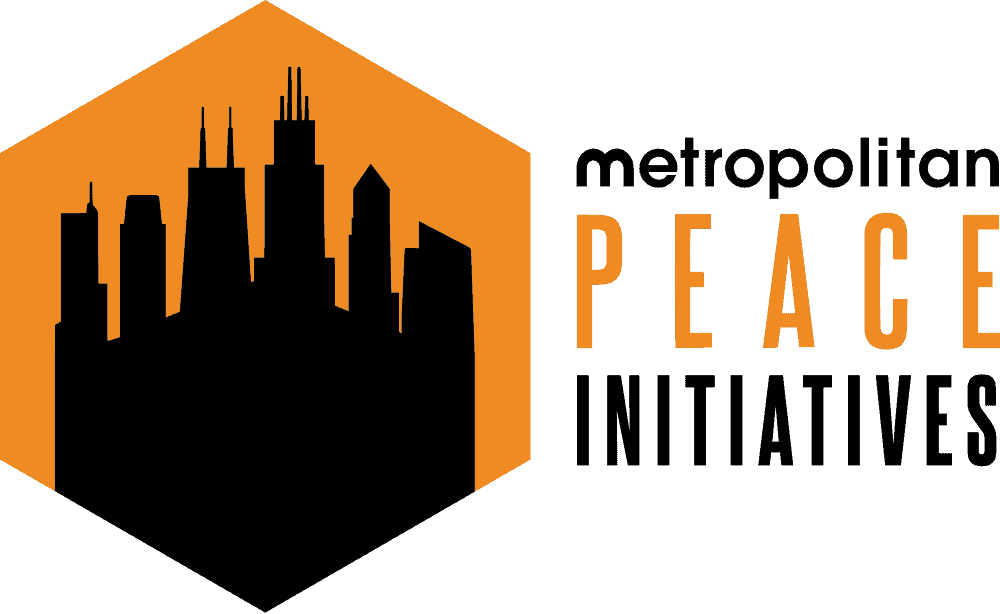Overheard at the 2024 Giffords Community Violence Intervention Conference
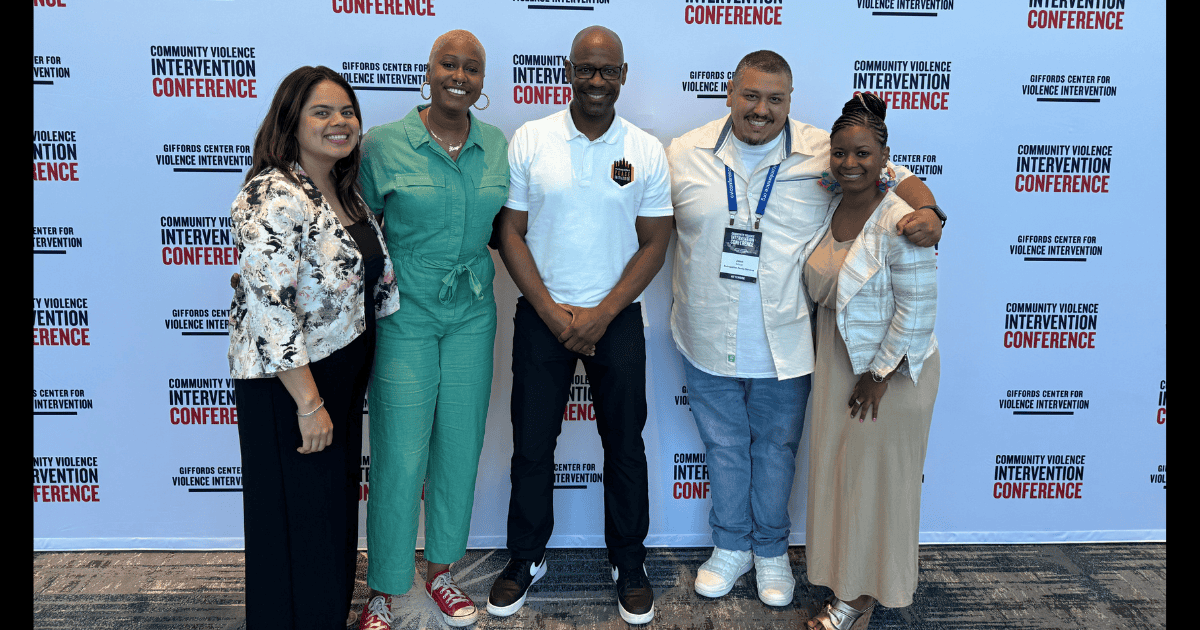
Metropolitan Peace Initiatives (MPI) and Communities Partnering 4 Peace (CP4P) were present at the 2024 Giffords Community Violence Intervention Conference which took place June 24-25 in Los Angeles, California. The conference is the largest gathering in the country dedicated to CVI, attracting over 800 experts from across the nation and world. This event aims to bring together leading experts, advocates, and practitioners to share insights, challenges, and opportunities in a collaborative environment focused on advancing the field of community violence intervention.
Below are some key takeaways from MPI and CP4P staff who spoke on different panels.
Building a CVI Infrastructure in Chicago: The Last Eight Years and the Next Big Scaling Leap Forward
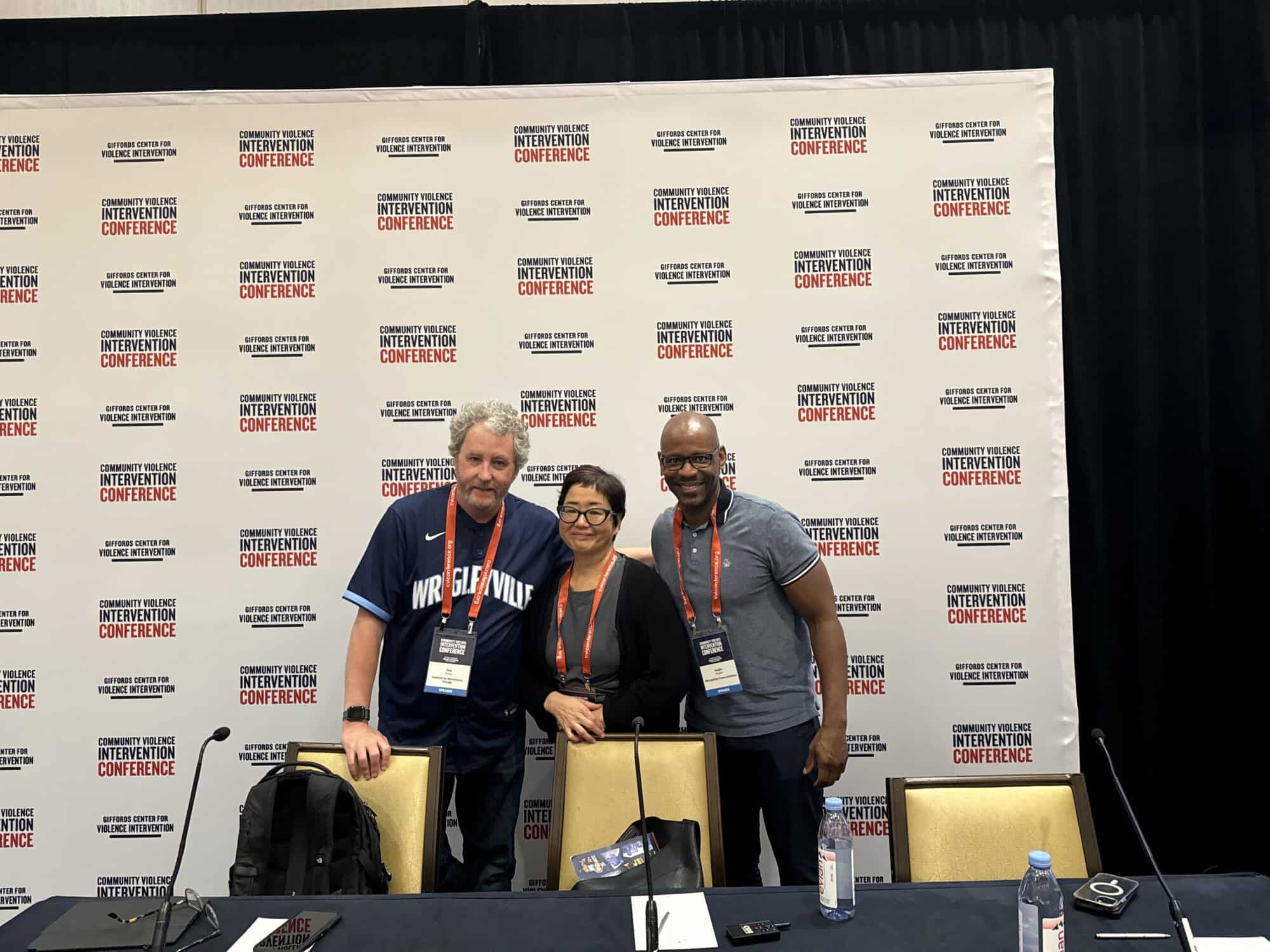
Presenters: Susan Lee, Chief of Strategy and Policy at Chicago CRED; Vaughn Bryant, Executive Director of Metropolitan Peace Initiatives; and Teny Gross, CEO of Institute of Non-violence Chicago
Session Overview: This session looked back on the last eight years of CVI work in Chicago. Presenters spoke on the necessary journey in building a collaborative, professional, and coordinated CVI infrastructure. The future of CVI in Chicago was also discussed with a hope to reach 75 percent of the population in the years to come and what that might take.
Question: What is needed when getting ready to request funding for community violence intervention programming?
“Some recognition of the importance of community intervention as a part of a comprehensive solution. It’s not just about a single program or a single project. It’s about [understanding] what is the infrastructure of violence reduction and are you at a scale to meet the scope of the need that is out there?” – Susan Lee, Chief of Strategy and Policy at Chicago CRED
“Community involvement. [We] do a landscape analysis in a particular neighborhood. Then we bring all of the partners that work in that neighborhood together to create a neighborhood-based plan, that’s built from the community partners, to make sure not only are all of the organizations being served, but served in a way that the community says it needs to be served.” – Vaughn Bryant, Executive Director of Metropolitan Peace Initiatives
“Collaboration. The fact that we’ve stuck together allowed for the city, the state, and Cook County to become involved with CVI. It was because we were organized and because we knew what we were doing … All of those things really make it easy for the government to get involved [for public funding].” – Vaughn Bryant, Executive Director of Metropolitan Peace Initiatives
The Role of Intermediaries in Building Organizational Capacity for CVI Programs
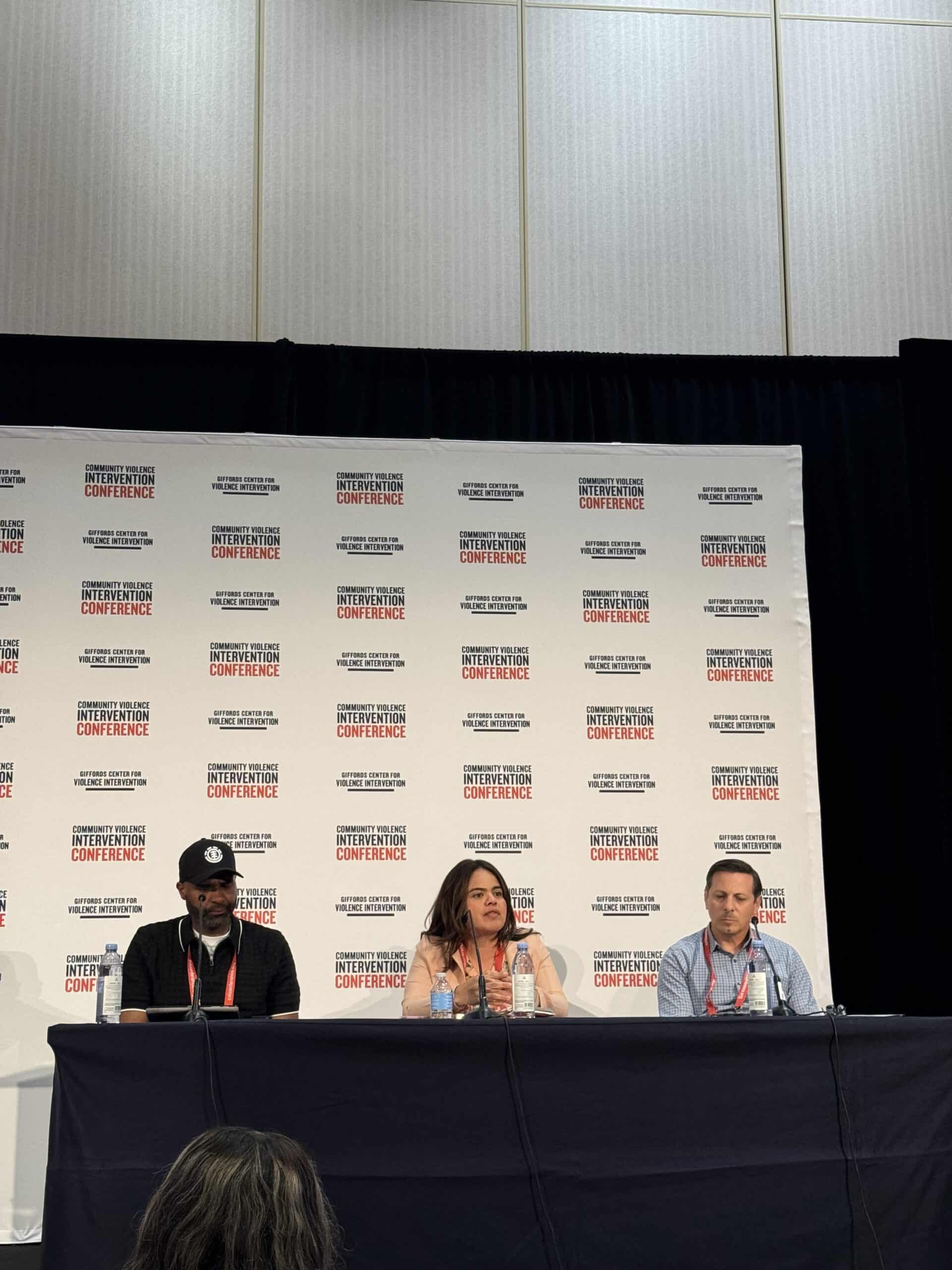
Presenters: Edith Lule, Director of Programming at Metropolitan Peace Initiatives; LeVar Michael, Senior Program Officer at Local Initiatives Support Corporation; and Richard Paul Morales President and CEO of Latino Coalition for Community Leadership Session
Session Overview: Different representatives from intermediary organizations explained their role in building the organizational, administrative, and programmatic capacity of community-based organizations. They spoke on the program operations from the back end, being audit-ready, and the importance of maintaining relationships with organizations.
Question: How do you become a successful and effective intermediary?
“[Being an intermediary] is definitely a lot of community. There are a lot of relationships… the same way that street outreach workers have that relationship with their community, we need to have a relationship with one another. That’s so important… If we see something that needs to be tweaked to become better, that’s what we’re here for. We’re really trying to look out. [We want] synergy. Making sure we’re on the same page. Making sure we understand our programs. That we are informed by finance and are informed by data. Making sure that we’re meeting consistently and that we have the right people at the table. Ensuring that we’re ‘community-based’ not only in the work but literally community-based. Making sure that we’re having restorative conversations amongst each other.” – Edith Lule, Director of Program Operations at Metropolitan Peace Initiatives
Strategies for Peace: Community Violence Intervention in Los Angeles and Chicago
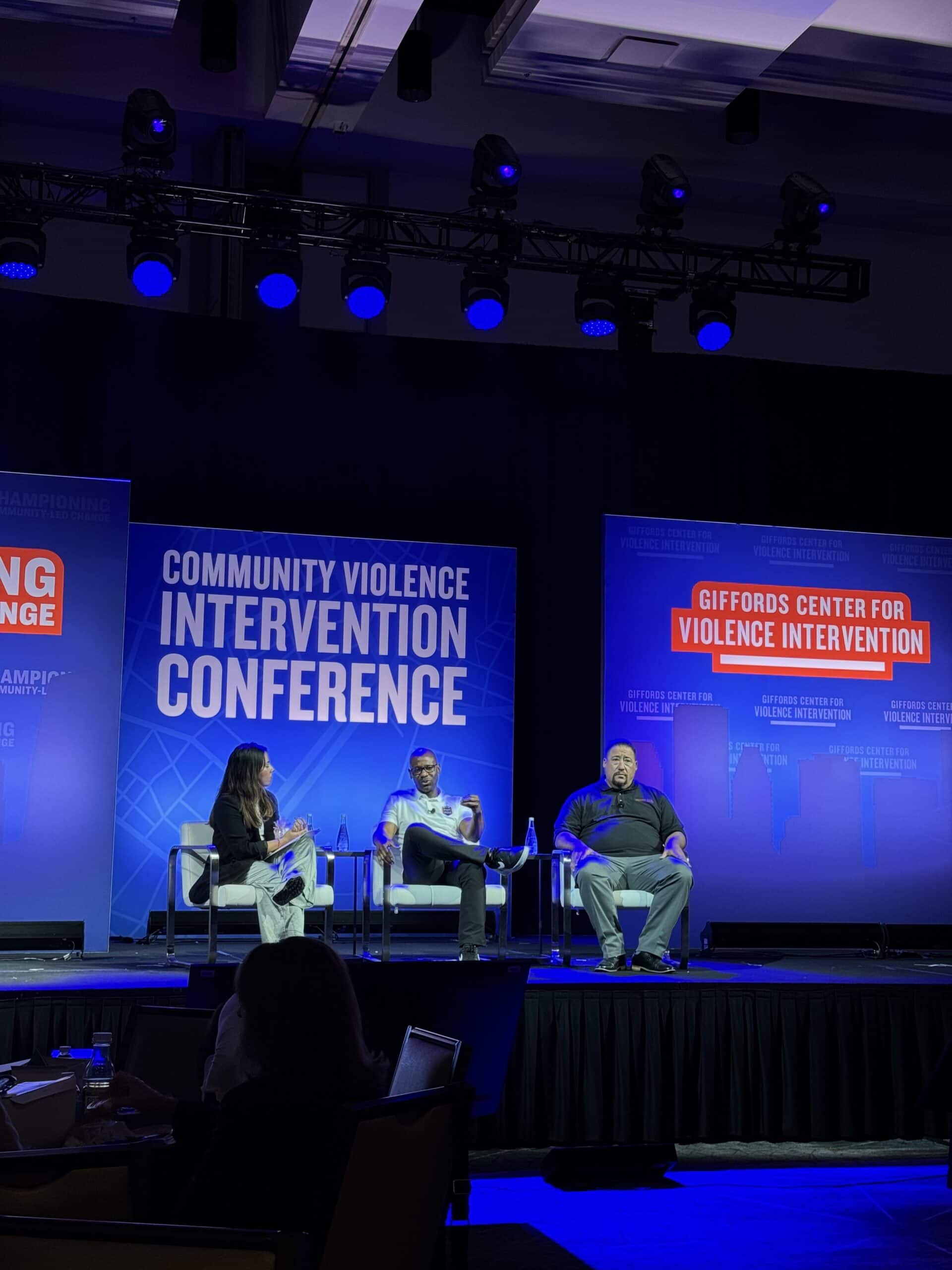
Moderator: Kimberly Gutierrez; Presenters: Vaughn Bryant, Executive Director of Metropolitan Peace Initiatives and Fernando Rejon, Executive Director of Urban Peace Institute
Session Overview: Speakers discussed key aspects of community violence intervention work, including training intervention workers and supporting worker well-being. Both speakers reiterated the importance of collaboration and community.
Question: What do you think the role of community violence intervention is when it comes to keeping our communities safe?
“I think our role is really getting to people before they encounter law enforcement, trying to create a healing mechanism for them, and put them on a solid path… to live a dignified life. [Community Violence Intervention] is non-punitive, it’s relational. It’s about pouring into folks and trying to heal our communities, both at the individual level but also at the community level… Bringing restoration to historic conflicts, both at the organizational level and also at the individual level… I think that’s something that should be led by the community and it should be of the community.” – Vaughn Bryant, Executive Director of Metropolitan Peace Initiatives
